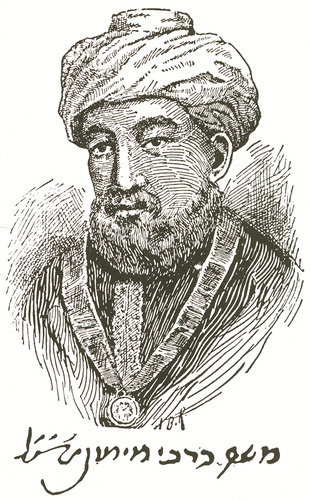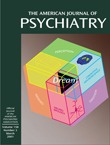Maimonides, 1135–1204
Rabbi Moshe ben Maimon, known to Jews as Rambam and to the world as Maimonides, became the most famous physician of the medieval world. Born in 1135 in Cordoba, Spain, his 14-volume magnum opus, Mishneh Torah, stands as perhaps the greatest explication of Talmudic law and wisdom ever written and is still a centerpiece of Jewish scholarship. Maimonides is also credited with one of the earliest medieval revivals of Aristotelean philosophy.
It is not clear how or from whom Maimonides obtained his medical training, although he modeled himself in medicine after the writings of Hippocrates, Galen, and Aristotle. Maimonides did not seriously practice medicine as an occupation until after the tragic death at sea of his beloved younger brother, David, in approximately 1170. Maimonides plunged into what undoubtedly was a major depression. Abraham Heschel quotes Maimonides’ description of depression:
When a man with a powerful frame, a sonorous voice, and a radiant complexion hears sudden news that greatly afflicts him, one can see his face turning pale, the glow dimming, the body hunching, the voice faltering, and when he tries with all his might to raise his voice, he is unable to do so, his strength is weakened. Indeed, he often trembles with feebleness, his pulse slows down, his eyes move back in their sockets. His eyelids grow so heavy that he cannot move them, his body becomes cold, and his appetite vanishes. (1, pp. 127–128)
From this melancholic depression came a profound conviction of the connection between mind and body and the necessity to minister to the “soul” in order to maintain physical health.
Maimonides wrote 10 major treatises on medicine. The Regimen of Health, written in 1198 for the eldest son of Saladin the Great, a man who apparently also suffered bouts of depression, is, according to Fred Rosner, “perhaps…the first description of psychosomatic medicine. He indicates that the physical well-being of a person is dependent on his mental well-being, and vice versa” (2, p. 10).
Maimonides put the treatment of mental illness on equal footing as that of physical illness, insisting, for example, that the physician provide immediate psychiatric care following a suicide attempt. He ruled that fear and anxiety needed to be assessed before invasive medical procedures are considered. He recommended a kind of exposure therapy to remedy some aspects of the “sick soul” and explained that treatments of mental anguish and maladaptive behavior, such as melancholy or excessive anger, should only be undertaken by sages specifically trained to deal with such ailments.
Maimonides believed passionately that doctors are only instruments of God’s will. Yet he demanded that medical practice be guided by careful empirical observation. In an era of not infrequent hostility between science and religion, it is refreshing to read the works of a great scholar and physician who seamlessly combined medicine and religion into daily life.
Address reprint requests to Dr. Gorman, Department of Psychiatry, New York State Psychiatric Institute, 1051 Riverside Dr., New York, NY 10032. Image courtesy of the New York Academy of Medicine.

Maimonides
1. Heschel AJ: Maimonides: The Life and Times of the Great Medieval Jewish Thinker. New York, Image Books, 1991Google Scholar
2. Rosner F: Medicine in the Mishneh Torah of Maimonides. Northvale, NJ, Jason Aronson, 1997Google Scholar



